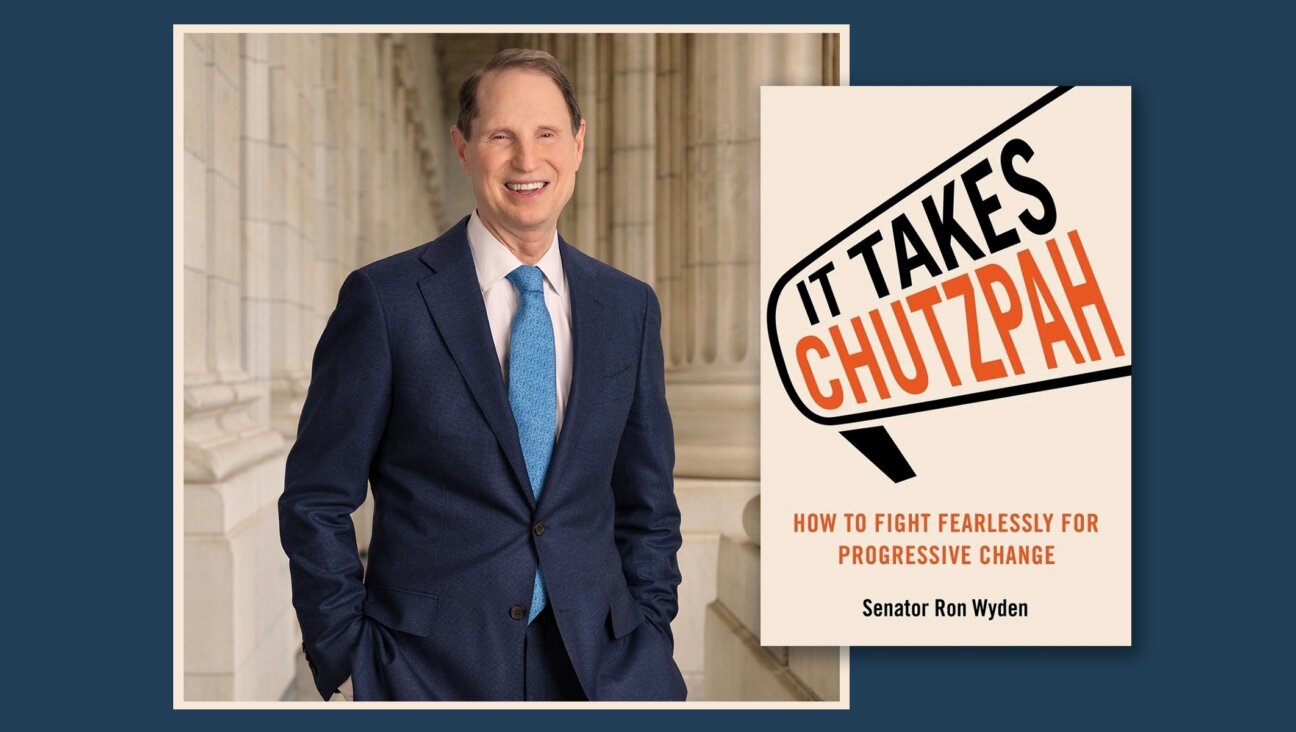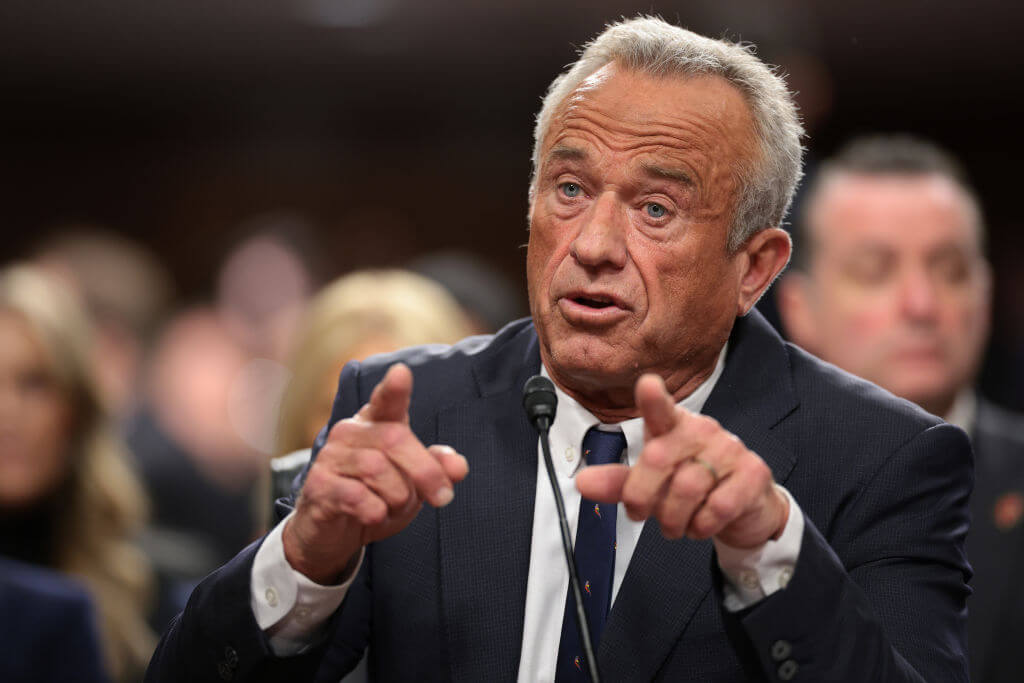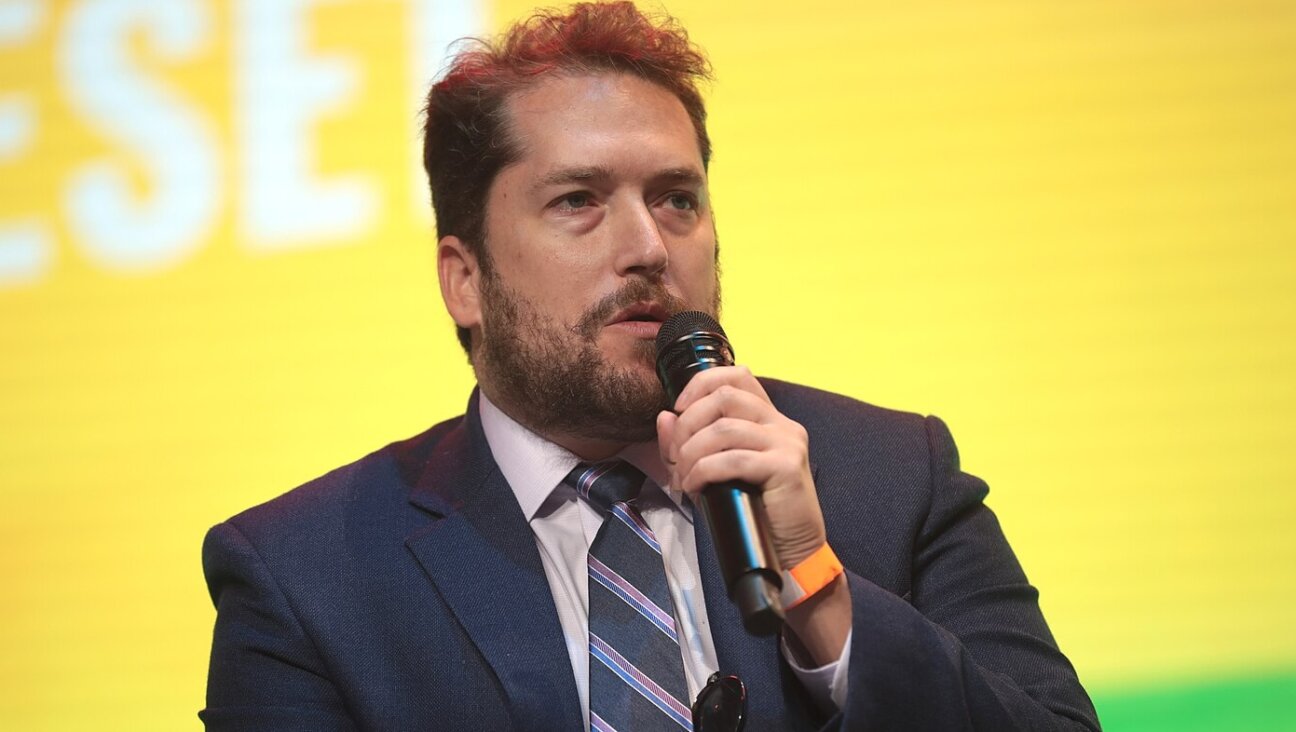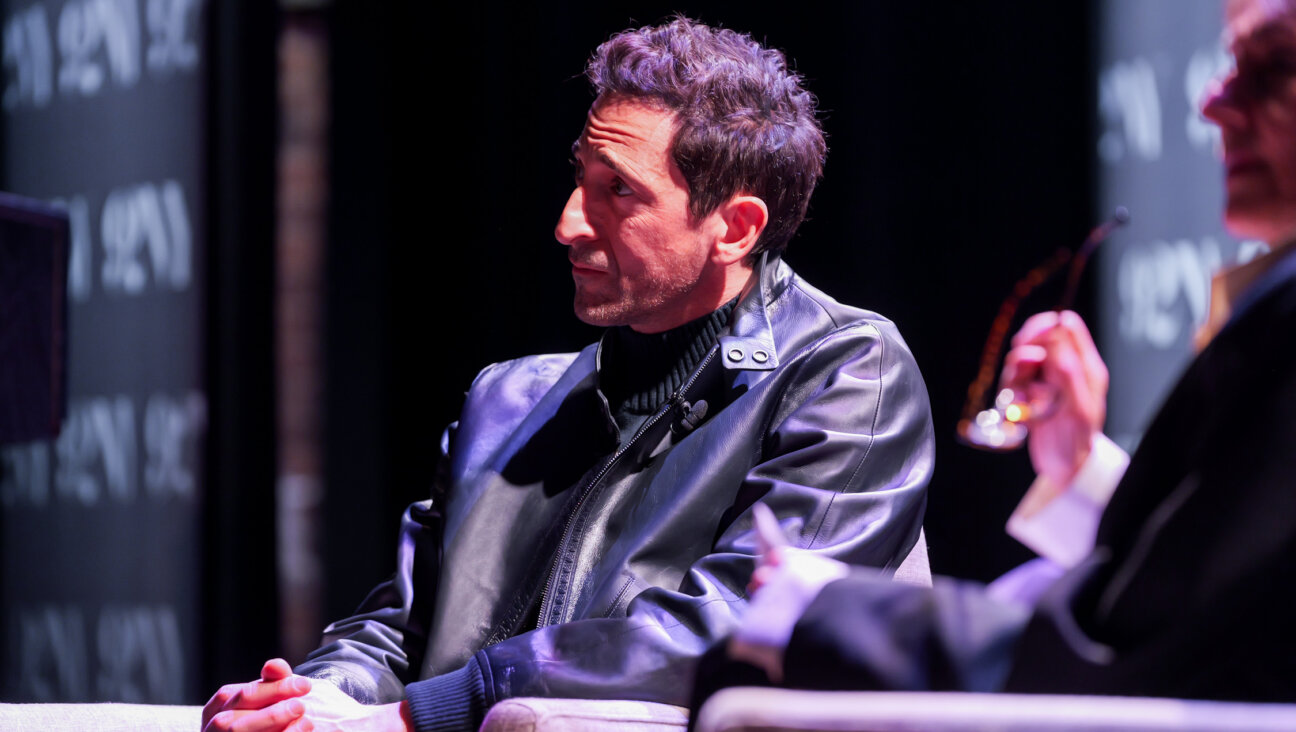Who will shape policy toward Israel in a second Trump administration?
Mike Pompeo, Tucker Carlson, Ric Grenell and Miriam Adelson all have influence, and maybe more
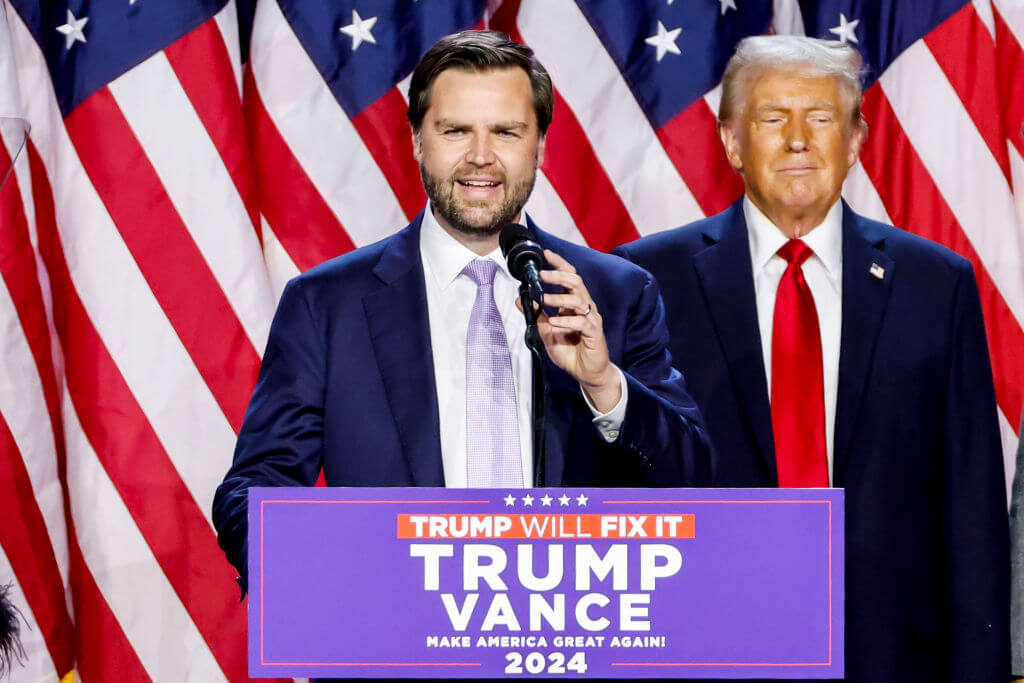
Republican vice-presidential nominee JD Vance and President-elect Donald Trump on Nov. 6, 2024. Photo by va Marie Uzcategui/Bloomberg via Getty Images
President Donald Trump’s first term was defined by unconventional and often unpredictable foreign policy, including abruptly exiting the Iran deal and moving the U.S. Embassy from Tel Aviv to Jerusalem. These steps earned him the trust of Israel’s political right, which helped him broker the Abraham Accords with Gulf States, and resonated with many Jewish Americans this year as he fought for a political comeback.
Now, as the country prepares for Trump’s historic second term, uncertainty surrounds how he might approach the raging wars in the Middle East and who will be the key players shaping his administration’s policies overseas. With his son-in-law and former Middle East adviser Jared Kushner promising not to return to the White House and many of the first term’s team of government professionals and policy wonks having abandoned him, analysts expect the second Trump administration’s policies to shift significantly.
During the campaign, Trump leaned on a mix of informal advisers, including right-wing media figures and influential Jewish mega donors. Chief among them were former Fox News host Tucker Carlson, an isolationist, and Dr. Miriam Adelson, who poured more than $100 million into Trump’s campaign and is a strong proponent of Israel annexing the occupied West Bank. The former president has been intentionally vague about specific policy, aside from his promise to end all wars.
J.D. Vance: Isolationist gatekeeper
Analysts increasingly think that Vice President-elect J.D. Vance could wield considerable influence over Trump’s policies because of Trump’s general disinterest in policy and his advancing age. Vance, who was only elected to the United States Senate in 2022, also needs to prove his mettle on substantive issues if he wants to make a credible bid for president —and to lead the MAGA movement in 2028.
Vance is also an isolationist and has recently made headlines with his skepticism about American military involvement overseas, including regarding Iran.
These views align with the “America First” faction of Trump’s base, and Vance maintains close associations with Carlson, as well as Elon Musk and right-wing influencers whose controversial rhetoric has stirred unease among American Jews and other strong Zionists.
Trump has always expressed skepticism about the U.S.’s extensive military commitments abroad and has committed to ending the wars in Gaza, Lebanon and Ukraine Vance’s stance — along with other key emerging voices in Trump’s orbit — could put even more distance between the U.S. and its traditional allies in the region, significantly reshaping policy toward Israel.
New faces for a future Trump cabinet
Still, most names being floated for cabinet and other national security positions have deep ties to Israel and promote a more traditional foreign policy.
One strong contender for secretary of state, for example, is Florida Sen. Marco Rubio, a hawk who serves on the Senate Foreign Relations Committee. He has advocated for more aggressive stances toward adversaries like China and Iran, though recently has aligned himself more with Trump’s positions, and gained his respect.
Robery O’Brien, who served as Trump’s final national security adviser in the first term, is also a candidate to become America’s top diplomat. As a foreign policy adviser to Trump’s campaign, he traveled to Israel in May to meet with Israeli Prime Minister Benjamin Netanyahu.
Another person with close ties to Trump is Ric Grenell, the former U.S. ambassador to Germany and former acting director of national intelligence. Known for his outspoken pro-Israel views, Grinnell was a key figure in advancing sanctions against Iran and the normalization of relations between Israel and the United Arab Emirates.
Grenell was instrumental in Trump’s outreach to Arab-American and Muslim voters in Michigan in recent months. Given his combative style, Grenell is seen as a candidate for national security adviser, a position that doesn’t require Senate confirmation.
Mike Pompeo, who served as secretary of state and director of the CIA in Trump’s first term, and Sen. Tom Cotton of Arkansas are reportedly top contenders for secretary of defense. Pompeo, who reshaped the state department’s policy on Israeli settlements in the occupied West Bank, and Cotton, an outspoken proponent of military action against Iran, are both very beloved by right-leaning pro-Israel groups.
Trump’s Jewish team
Several prominent Jews are expecting to be tapped for key positions. Howard Lutnick, CEO of Cantor Fitzgerald, is already co-chair of Trump’s transition team; he and John Paulson, a billionaire hedge fund manager and major Trump donor, are candidates for treasury secretary. Former U.S. Rep. Lee Zeldin, a vocal Trump surrogate from Long Island, was publicly promised a job in the administration.
And David Friedman, Trump’s former U.S. Ambassador to Israel — who played a critical role in moving the embassy to Jerusalem — has expressed interest in serving in a national security role. In a recent book, Friedman suggested diverting $1 billion from Palestinian aid to fund West Bank annexation. According to CNN, Friedman and former State Department spokeswoman Morgan Ortagus are candidates for Ambassador at the United Nations.
The UN ambassadorship is also under consideration for Rep. Elise Stefanik of New York, a close Trump ally who gained popularity in the Jewish and pro-Israel community after challenging the presidents of Harvard, MIT, and the University of Pennsylvania on whether calls for the genocide of Jews violate their campus codes of conduct.
Boris Epshteyn, a senior adviser to Trump since 2016 who also served as counsel during the hush money trial in New York, will likely stay in Trump’s inner circle, perhaps as a general adviser with a broad portfolio.
Peter Deutsch, a former Democratic congressman from Florida who endorsed Trump and was a surrogate in outreach to Jewish voters, could be rewarded with a government job. The same for David Sacks, a tech entrepreneur who bundled millions for Trump and was very vocal during the campaign against Biden’s foreign policy matters.
A message from our Publisher & CEO Rachel Fishman Feddersen

I hope you appreciated this article. Before you go, I’d like to ask you to please support the Forward’s award-winning, nonprofit journalism so that we can be prepared for whatever news 2025 brings.
At a time when other newsrooms are closing or cutting back, the Forward has removed its paywall and invested additional resources to report on the ground from Israel and around the U.S. on the impact of the war, rising antisemitism and polarized discourse.
Readers like you make it all possible. Support our work by becoming a Forward Member and connect with our journalism and your community.
— Rachel Fishman Feddersen, Publisher and CEO








